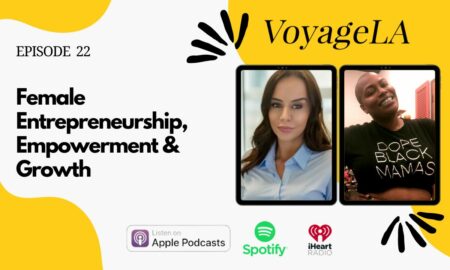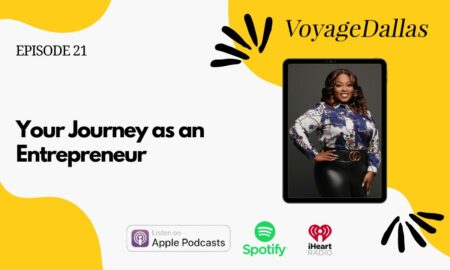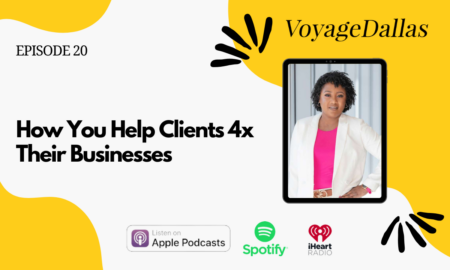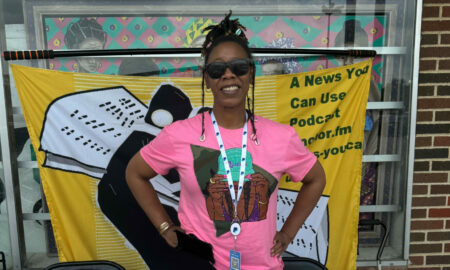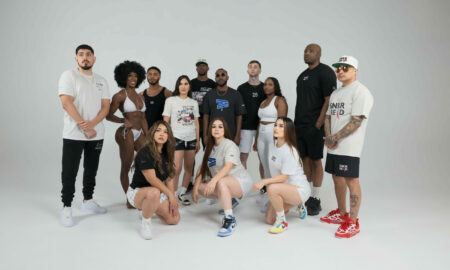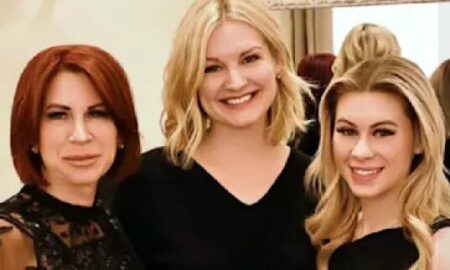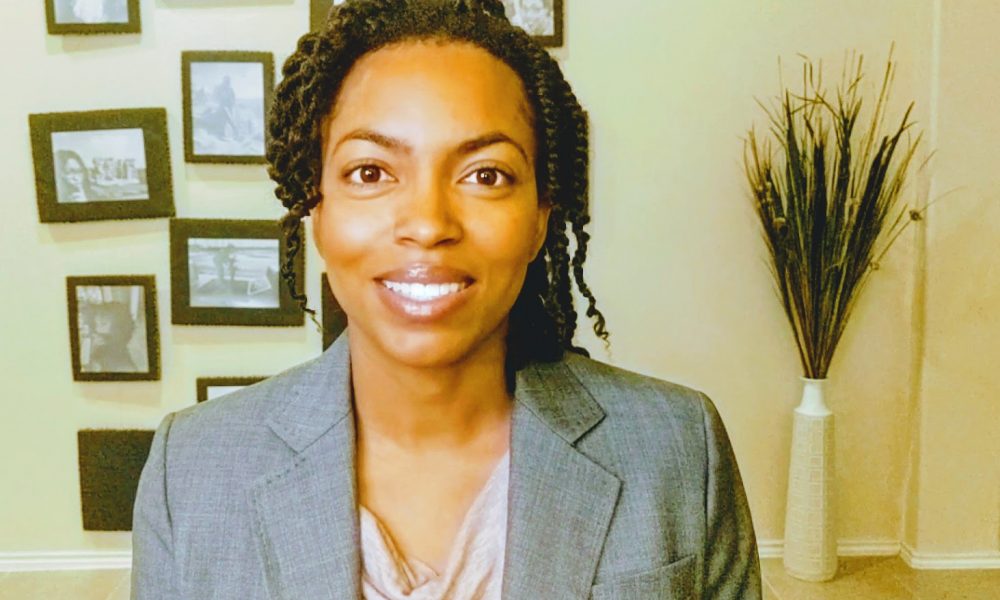

Today we’d like to introduce you to Heather Thornton Walker, Ph.D.
Heather, please share your story with us. How did you get to where you are today?
The truth is that psychology has been my primary path from the beginning. While other little girls were playing with Barbie, I was busy reading my mom’s psychology textbooks, taking personality tests, and quizzes. Yes, even the love quizzes in the magazines! I wanted to find out how I could be my best self and help others do the same.
My fascination with the human psyche continued on through school, and because they advised us to pick a career that we could love for a lifetime, I decided to choose psychology. I figured that humans are so interesting that I could spend a lifetime chasing all of the questions I had.
Questions like:
– If we know that social support is the greatest defense against mental illness, why do we allow people to fall into loneliness?
– What makes relationships strong?
– How can we heal through connections?
– How do complete strangers transition into fast friends?
– What keeps friends together when there are competing interests like family, career, and location differences?
We’re always bombarded by how great it is to pursue your passion, etc – but we’ve spoken with enough people to know that it’s not always easy. Overall, would you say things have been easy for you?
Of course, I had a lot of struggles along the way. At times, I felt like my life was one big obstacle course! I won’t go into everything, but I can share a quick personal challenge as well as a few that I experienced with my work.
Personally, during my teenage years, my biggest challenge at the time was that I didn’t have a model of success to follow. Both of my parents dropped out of college; they wanted me to go on to college, but they couldn’t advise me or pay for any part of my schooling. They had really high hopes and expectations for me, and I have to admit that the thought of 8 – 10 years more of school terrified me. I took advantage of every opportunity and special program that I could along the way. I’m really blessed to have made it through from start to finish.
My formal journey into the world of psychology started at Texas Woman’s University (Denton, Texas) through the Multi-ethnic Biomedical Research Support Program with Dr. Lynda Uphouse. That program and that woman gave me the community and confidence I needed to make it through college and get into graduate school. They helped me explore options and helped me fund school through lab work — I tried neuroscience, but I realized that working on rats all day was killing my love for food. I considered counseling and community-based work, but I had too many of my own bags to carry at the time. At some point, I started to gravitate to the world of organizational psychology.
Fast forward some years–What I find interesting about being a consultant to organizations is that the same people who are on the therapist’s couch are the same people who are leading teams, answering phones, and crunching numbers. Really, the health of any organization relies on the health of its people. Once I realized that it was clear to me that my time would be devoted to building organizations’ capacity to get things done by finding, growing, and supporting good people.
From a work perspective, I had three major challenges that sprang up from my focus on levity at work:
1. First, it’s hard to take fun seriously. People want to have fun, but they are not trying to dissect fun. I also didn’t have an academic model and measurement tool that worked so I had to create one.
- I started focusing on levity in 2009 during a recession. I was in St. Louis at the time, and the recession hit us pretty hard–we’re talking mass layoffs, hiring freezes, and people losing their homes. As a graduate student, I was in what felt like a protected bubble. However, because I worked while in school I wasn’t fully protected from the psychological toll of it. I had to decide if I really believed that levity could make the workplace better. There were some dark moments and times when I questioned if this could even help. Luckily, I had a manager who supported levity and managed to create an amazing functional family feel in the midst of the recession. She helped me see that it is possible to protect your team even when things look bleak. Levity really did serve as the glue that kept us together.
- There are definitely some out there who feel like work should be hard and stressful. This typically comes out in phrases like, ‘just suck it up’, ‘I’m not here to make friends’, ‘I don’t understand why we need to care about people’s feelings’, ‘they should just do their jobs’, and ‘sink or swim’. Under all of that is the belief that we shouldn’t care if people enjoy who they work with and what they do. Award-winning companies have a different mindset.
So let’s switch gears a bit and go into the Lead with Levity story. Tell us more about the business.
I have always wanted to leave the world a little bit better than how I found it. My brand is Lead with Levity, and I use my platform to help teams come together to do their best work. I do this through a podcast called Lead with Levity for business professionals where I chat with leaders, researchers, and consultants about the employee experience and workplace culture. I also provide consulting services to support managers with data and feedback that they wouldn’t normally be able to get from their teams, as well as insights and practical recommendations that they can act on immediately. I only work with managers who care deeply about supporting their teams and who are also willing to take action on recommendations. In my experience, these two criteria are crucial to success.
We follow a 3-step process:
1. Conduct a workplace levity audit (via online survey) and discuss findings
2. Establish an action plan with ongoing support from me
3. Follow-up with pulse surveys to track progress
When a manager asks for my help, I lead with data and feedback from the team on what works for them instead of throwing out blind trust falls and obstacle courses. I want to provide support that helps managers maintain a healthy work environment over the long haul. Sometimes that requires deeper work to repair trust or create an environment that’s inclusive, but the team is stronger for it in the end. I love this process. It’s team-building 2.0!
I’ve been interested in this topic since 2009. I’ve explored what makes teams and organizations strong and how levity factors into their success. Levity has three components: Buoyancy (float factor), Edification (supportive growth factor), and Amusement (fun factor). It promotes unity through healthy social bonds. It diffuses tension and protects against boredom, repetition, and/or the effects of high-pressure environments. People will be laughing, making organic connections, reaching out for feedback and support. People will go above and beyond for each other. When we stack these exchanges over and over again on a daily basis, we have a winning work environment.
The Levity at Work Scale asks employees to step out of their shoes and into the customer or visitor’s perspective. We ask teams if a visitor stops by, will they see good things when they look around? I validated the Levity at Work scale with an international sample of 800+ working professionals. It has positive correlations with job satisfaction, team cohesion, organizational citizenship behavior, a willingness to recommend the organization to others, and intentions to stay with the company. So that means that when levity is high, these also tend to be high. High tide floats all boats.
Has luck played a meaningful role in your life and business?
I’ve had the misfortune of growing up with limited resources. I’ve worked in toxic environments with terrible bosses. I’ve seen and heard things that could fill an interesting memoir.
But, I don’t really believe in luck–good or bad. I believe in blessings, and the universe has been working overtime to keep the blessings flowing!
When I look back at all of my experiences in “the wilderness,” they all provided an opportunity for me to be resourceful, gritty, and resilient. Life ebbs and flows. Blessings come and go. I have found ways to even see the hard times as blessings because they force me to rethink how I see and approach the world.
All that to say that the best luck I’ve had has always been when I cross paths with good people who truly care about making the world a better place.
Contact Info:
- Website: https://www.leadwithlevity.com
- Email: info@leadwithlevity.com
- Facebook: www.facebook.com/leadwithlevity
- Podcast: https://player.whooshkaa.com/shows/lead-with-levity
- LinkedIn: www.linkedin.com/company/leadwithlevity







Suggest a story: VoyageDallas is built on recommendations from the community; it’s how we uncover hidden gems, so if you or someone you know deserves recognition please let us know here.












